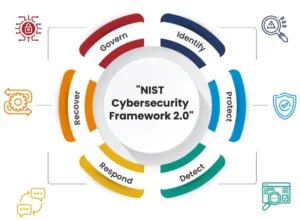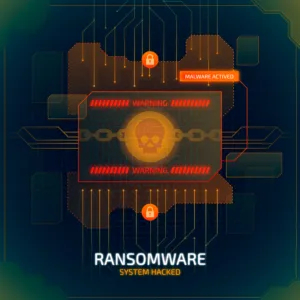
Table of Contents
Explore our comprehensive guide to safeguarding your festive celebrations with an effective blueprint for cyber scam protection. Learn essential strategies to secure your online activities during the holiday season and ensure a joyous and worry-free celebration in 2023.
Introduction – Cyber Scam Protection
As the holiday season approaches, the joy and excitement of festive celebrations often coincide with an unfortunate rise in cyber scams. With the increasing reliance on digital platforms for shopping, communication, and entertainment, cybercriminals are becoming more sophisticated in their methods. In 2023, it’s crucial for individuals and businesses alike to stay vigilant and take proactive measures to protect themselves from cyber threats.
This comprehensive guide aims to provide you with practical tips and strategies to safeguard your online activities during this holiday season.
1. Stay Informed about Current Cyber Threats
Knowledge is your first line of defense against cyber scams. Stay informed about the latest cybersecurity threats specific to the holiday season in 2023. Cybercriminals often adapt their tactics to exploit new trends, so being aware of emerging threats will help you stay one step ahead. Follow reputable cybersecurity blogs, subscribe to newsletters, and stay updated on security advisories from trusted sources.
2. Use Strong and Unique Passwords
Most effective ways to protect yourself online is by using strong, unique passwords for each of your accounts. You can use password manager to generate and store complex passwords securely. Changing your passwords regularly adds an extra layer of protection, reducing the risk of unauthorized access to your accounts during the holiday season.
3. Enable Two-Factor Authentication (2FA)
Adding an extra layer of security to your accounts is crucial, especially during the holiday season. Enable two-factor authentication whenever possible. This means even if cybercriminals manage to obtain your password, they would still need another form of verification, such as a code sent to your mobile device, to access your accounts.
4. Be Alert with Email and Phishing Scams
Phishing scams are a common tactic used by cybercriminals during the holiday season. Be cautious when receiving emails, especially those claiming to be from reputable retailers, financial institutions, or even friends and family. Please do not click on suspicious links or download any attachments from unknown sources. Verify the legitimacy of the email by contacting the supposed sender through a trusted means before taking any action.
5. Shop Safely Online
With the convenience of online shopping comes the risk of falling victim to fake websites and counterfeit products. Stick to reputable online retailers, check for secure payment options, and ensure that the website’s URL starts with “https://” indicating a secure connection. Avoid making purchases through public Wi-Fi networks, as these can be less secure and make it easier for cybercriminals to intercept your data.
6. Monitor Your Financial Statements
Monitor your bank and credit card statements for any unauthorized or suspicious transactions on a regular basis. During the holiday season, cybercriminals may attempt to exploit the increased volume of online transactions. Report any suspicious activity to your financial organization/bank immediately. Consider setting up transaction alerts to receive real-time notifications for any significant changes in your accounts.
7. Update Your Devices and Software
Keep your devices and software up-to-date from the latest security patches and versions. Cybercriminals often exploit vulnerabilities in outdated systems, so regularly check for updates on your operating system, antivirus software, and other applications. Consider enabling automatic updates to ensure you are protected against the latest threats.
8. Secure Your Home Network
As more devices become connected to the internet, securing your home network is essential. Change the default passwords on your routers and other connected devices, use WPA3 encryption for Wi-Fi networks, and consider implementing a firewall to protect against unauthorized access. This not only safeguards your personal information but also prevents cybercriminals from gaining access to your home network.
9. Educate Yourself and Your Family:
Cybersecurity is a collective effort. Educate yourself and your family about the potential risks and best practices for staying safe online. Teach them to recognize phishing attempts, use strong passwords, and be cautious with the information they share on social media platforms. Creating a cybersecurity-aware environment within your family helps build a stronger defense against cyber threats.
10. Backup Your Data
In the unfortunate event of a cyber-attack, having a backup of your important data is crucial. Regularly backup your files to an external hard drive or a secure cloud service. This ensures that even if you fall victim to ransomware or other cyber threats, you can restore your data without succumbing to the demands of cybercriminals.
Conclusion – Cyber Scam Protection
As we enter the festive season, it’s essential to prioritize cybersecurity to safeguard our online activities from potential threats.
By staying informed, using strong passwords, enabling two-factor authentication, and adopting safe online practices, you can enjoy the holiday season without falling victim to cyber scams.
Remember, a proactive approach to cybersecurity is the key to a safe and joyous celebration in 2023.
Read more on https://cybertechworld.co.in for insightful cybersecurity related content.




















I don’t think the title of your article matches the content lol. Just kidding, mainly because I had some doubts after reading the article.
Thanks for sharing. I read many of your blog posts, cool, your blog is very good.